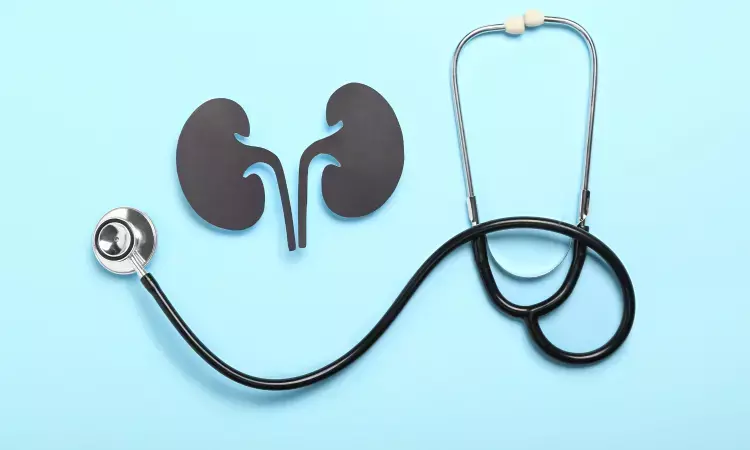- Home
- Medical news & Guidelines
- Anesthesiology
- Cardiology and CTVS
- Critical Care
- Dentistry
- Dermatology
- Diabetes and Endocrinology
- ENT
- Gastroenterology
- Medicine
- Nephrology
- Neurology
- Obstretics-Gynaecology
- Oncology
- Ophthalmology
- Orthopaedics
- Pediatrics-Neonatology
- Psychiatry
- Pulmonology
- Radiology
- Surgery
- Urology
- Laboratory Medicine
- Diet
- Nursing
- Paramedical
- Physiotherapy
- Health news
- Fact Check
- Bone Health Fact Check
- Brain Health Fact Check
- Cancer Related Fact Check
- Child Care Fact Check
- Dental and oral health fact check
- Diabetes and metabolic health fact check
- Diet and Nutrition Fact Check
- Eye and ENT Care Fact Check
- Fitness fact check
- Gut health fact check
- Heart health fact check
- Kidney health fact check
- Medical education fact check
- Men's health fact check
- Respiratory fact check
- Skin and hair care fact check
- Vaccine and Immunization fact check
- Women's health fact check
- AYUSH
- State News
- Andaman and Nicobar Islands
- Andhra Pradesh
- Arunachal Pradesh
- Assam
- Bihar
- Chandigarh
- Chattisgarh
- Dadra and Nagar Haveli
- Daman and Diu
- Delhi
- Goa
- Gujarat
- Haryana
- Himachal Pradesh
- Jammu & Kashmir
- Jharkhand
- Karnataka
- Kerala
- Ladakh
- Lakshadweep
- Madhya Pradesh
- Maharashtra
- Manipur
- Meghalaya
- Mizoram
- Nagaland
- Odisha
- Puducherry
- Punjab
- Rajasthan
- Sikkim
- Tamil Nadu
- Telangana
- Tripura
- Uttar Pradesh
- Uttrakhand
- West Bengal
- Medical Education
- Industry
Donor COVID-19 positivity does not affect outcomes of kidney transplant: JAMA.

An Original Investigation on Nephrology has recently concluded that using kidneys from donors with active or resolved COVID-19 is safe. In their follow-up period, the researchers reported excellent treatment outcomes in their study of 35 851 deceased donors and 45 912 adult transplant recipients.
This study is published in JAMA Network Open.
There is a lack of data regarding national patterns in kidney use and medium-term kidney transplant (KT) outcomes among patients receiving kidneys from active or resolved COVID-19–positive donors.
This was further investigated by researchers in the present study using national US transplant registry data from 35 851 deceased donors of mean age 42 years (71 334 kidneys) and 45 912 adult patients of mean age 54 years (received Kidney Transplant from March 1, 2020, to March 30, 2023). The exposure was donor SARS-CoV-2 nucleic acid amplification test (NAT) results (positive NAT results within seven days before procurement was active COVID-19 and positive NAT results one week (>7 days) before procurement was resolved COVID-19).
Kidney nonuse, all-cause kidney graft failure, and all-cause patient death were the primary outcomes measured in the study. While secondary outcomes measured in the study were:
- Acute rejection (i.e., rejection in the first six months after KT)
- Transplant hospitalization length of stay (LOS)
- Delayed graft function (DGF)
The results of the research are:
- Over time, there was a decrease in the likelihood of nonuse of kidneys from active or resolved COVID-19–positive donors.
- Kidneys from active and resolved COVID-19–positive donors had a greater likelihood of nonuse than those with COVID-19–negative donors.
- From 2020 to 2022, kidneys from active COVID-19–positive donors had a greater likelihood of nonuse than those without COVID-19.
- Kidneys from resolved COVID-19–positive donors had a higher likelihood of nonuse in 2020 and 2021 but not in 2022.
- In 2023, kidneys from both active and resolved COVID-19–positive donors were not related to higher odds of nonuse.
- There was no higher risk of graft failure or death in patients receiving kidneys from active or resolved COVID-19–positive donors.
- There was no association of Donor COVID-19 positivity to longer LOS, higher risk of acute rejection, or higher risk of DGF.
Concluding further, they wrote the donor COVID-19 positivity is not associated with worse Kidney Transplant outcomes within two years after the transplant.
They explained that using kidneys from donors with active or resolved COVID-19 is safe in the medium term.
Further investigations are warranted to determine the long-term results.
The study's limitations were related to the lack of a timeline for SARS-CoV-2 infection among donors, retrospective study, selection bias, and relative recency of the pandemic.
Further reading:
Ji M, Vinson AJ, Chang S, et al. Patterns in Use and Transplant Outcomes Among Adult Recipients of Kidneys From Deceased Donors With COVID-19. JAMA Netw Open. 2023;6(5):e2315908. doi:10.1001/jamanetworkopen.2023.15908
BDS, MDS in Periodontics and Implantology
Dr. Aditi Yadav is a BDS, MDS in Periodontics and Implantology. She has a clinical experience of 5 years as a laser dental surgeon. She also has a Diploma in clinical research and pharmacovigilance and is a Certified data scientist. She is currently working as a content developer in e-health services. Dr. Yadav has a keen interest in Medical Journalism and is actively involved in Medical Research writing.


